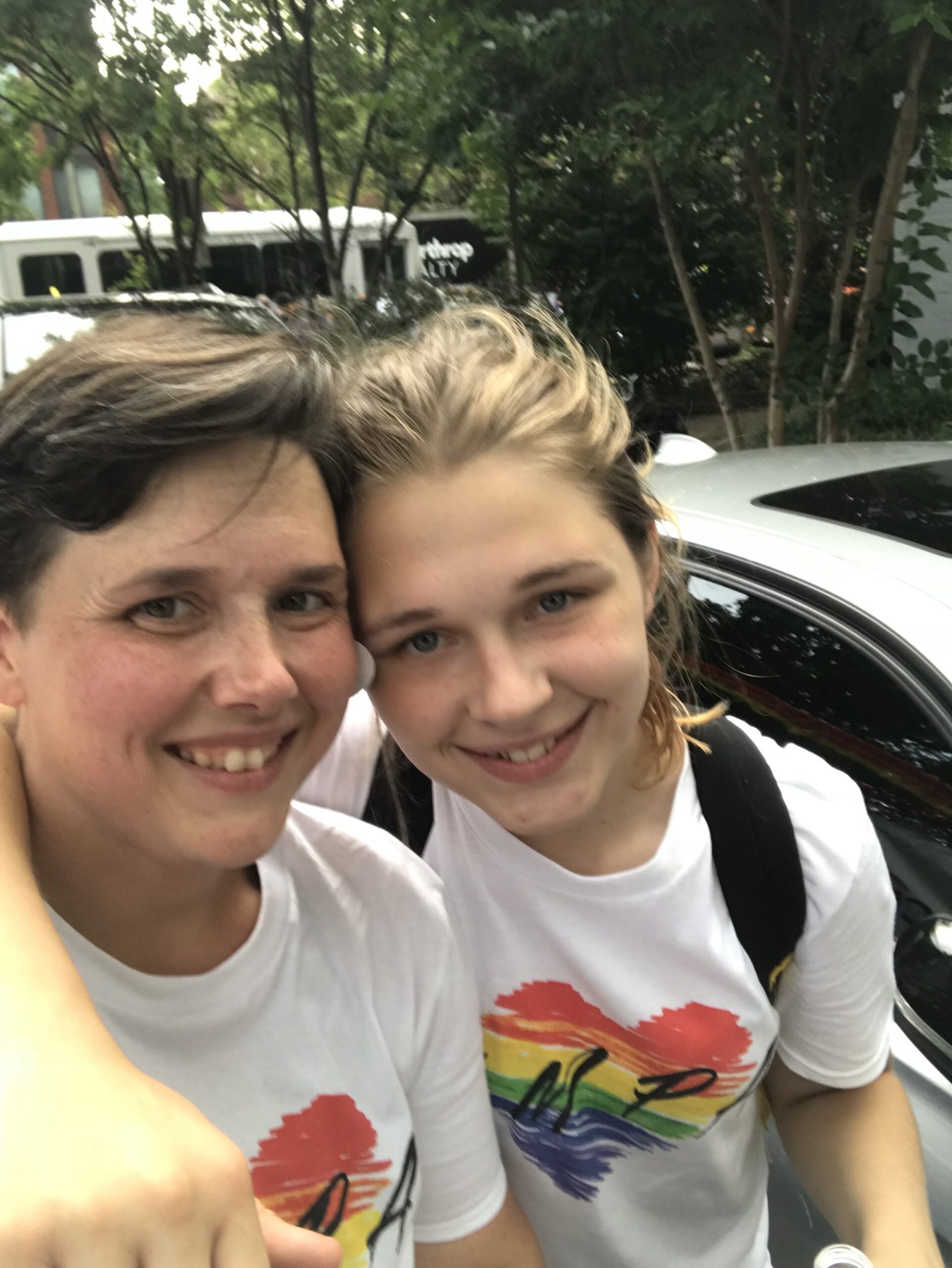By Emily Starbuck Gerson
As an Army spouse with six kids, Amanda Brewer was already savvy at parenting and navigating all the typical military challenges. But when her daughter Jennifer, now 17, came out as transgender at age 12, Brewer realized she had a lot more learning to do.
At the time, the military had no resources for families with LGBTQ kids, so Brewer worked hard to advocate for her child, find any available resources, and navigate an already-challenging medical system.
Deciding it shouldn’t have to be this way, Brewer and another military parent of a transgender child co-founded MMAA’s MilPride program to ensure no other family had to go through this alone. This program offers online support and resources for both parents and youth. Brewer and her family are currently stationed at Fort Belvoir, Virginia.
Modern Military Association of America: When did your daughter come out as transgender, and what was your experience like as a parent, especially one in the military community?
Amanda Brewer: Jennifer came out in seventh grade at 12 years old. It was just a bit after the school year started. We were very lucky to have a therapist who visited our house a few days a week. She was super supportive and helped explain it all to the younger children.
As a mom, I worried. I didn’t know anyone who was transgender. I didn’t know how to support her on day one, or who to turn to. I started frantically messaging people. I am very thankful they responded to me with resources and words I didn’t want to hear but needed to.
Jennifer came out before military family members were allowed to have trans-related medical care. When I got her referral off post for therapy and the gender clinic at the children’s hospital, it was a denial. I then had to fuss with the behavior health clinic to please let her be seen there, because there was no alternative.
After some time passed, our family was introduced to Dr. Klein, the adolescent medicine doctor at Fort Belvoir. He was the breath of fresh air and the education I needed, and one of Jennifer’s biggest cheerleaders. That is the biggest benefit is finding that one doctor who truly cares and works tirelessly for military children.
MMAA: Why did you start MilPride, and how does it help other parents like you?
AB: MilPride is a support program for LGBTQ military children. We place community for the families on day one, which they might not have known they have.
Our families come from all walks of life and varied experiences. We as a collective group answer questions, give experienced recommendations, and share resources. I met my co-founder Jess Girven in a group for parents who have transgender children.
She was having a hard time, and we had a doctor for our child. I literally just messaged her and said, “Hey, if you can get to the States, then you can stay at our house.” When we finally met, we created MilPride together, because we didn’t want this to be the norm for military children. We’d ideally love for them to have support and medical care all over the world. We decided to bridge that gap with our group. Now it’s expanding more than ever, and it’s truly a beautiful thing to see.
MMAA: What are some of the current challenges facing military families like yours with LGBTQ kids? Are you concerned about the surge of anti-trans bills in so many states?
AB: Two of the biggest concerns for trans families I know, and for my own, are the state laws and bills that are popping up. There still seems to be a shield of protection for on-post care, but not all children get their care at a military treatment facility.
My heart breaks for them trying to sort that out in an unsupportive state. We are all hoping with fingers crossed that the Armed Forces Transgender Dependent Protection Act is passed. This bill will offer the protection for transgender children and their families to not be placed in a state without care or with laws that don’t support the child. EFMP is the avenue that this bill would work through. The families would enroll their child in EFMP, and this would protect them from going to non-supportive areas.
We are currently learning to tread water with transition-related care for Jenn while she goes away to college. Since she’s attending in the same state we live, it’s a bit easier I think, but it’s that learning curve all over again.
MMAA: What advice do you have for other military families who have a child who comes out as LGBTQ, especially as transgender?
AB: First, I’d say take a deep breath. Your child just told you their authentic truth. Them having the courage to do that is huge, and let them know you support them and that parental love is unconditional.
Reach out to local resources so you can get the help or guidance for local schools. MMAA has a lot of resources and connections for new families when looking for doctors or mental health professionals.
We now buy a cake and celebrate every year for my daughter’s coming out day. It was the day our family became what it was meant to be.
© Copyright modern military association | EIN 52-1845000 | all rights reserved | legal & Financial
